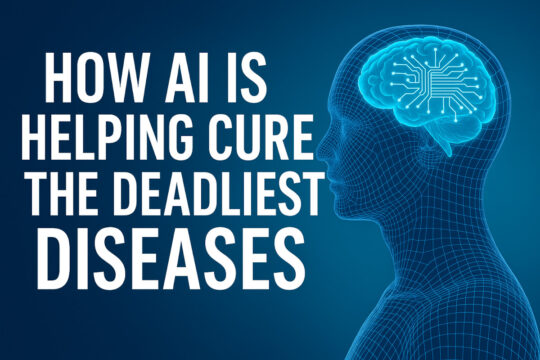AI isn’t just stealing jobs, it’s also fighting death

When people hear “AI,” they think of deepfakes, bogus essays or robots stealing jobs. But there’s something way bigger happening behind the scenes: AI is low-key helping doctors beat diseases that terrify us. Like actually saving lives.
❤️ Heart disease
Still the world’s #1 killer … but AI has entered the chat, and it’s scanning your chest X-rays like Sherlock Holmes in a lab coat.
AI is getting scarily good at spotting early warning signs doctors might miss. A study in Nature Medicine showed AI could detect hidden heart failure risks just from simple chest X-rays, without needing tests.
👉 Ask your doctor about: AI-assisted cardiac imaging or early heart disease screenings.
🧠 Alzheimer’s
In a recent study, researchers used AI to predict Alzheimer’s disease up to seven years before traditional diagnosis methods. Yes, seven years.
👉 Ask your doctor about: Cognitive baseline screenings and AI-enhanced imaging.
🧬 Cancer
AI is helping us find cancer earlier, faster and more accurately. AI-assisted mammograms improved early breast cancer detection by 30% while cutting down false alarms.
👉 Ask your doctor about: AI-supported imaging and therapies.
🦠 Infectious diseases
AI is now helping diagnose infections like tuberculosis, a major global killer, with stunning speed and accuracy. AI algorithms read chest X-rays and detected signs of TB as well as seasoned radiologists but in a fraction of the time.
👉 Ask your doctor about: AI tools being used for lung screenings.
💉 Diabetes
AI is helping patients predict dangerous blood sugar swings before they happen. A 2024 study in NPJ Digital Medicine showed AI can forecast blood sugar crashes hours ahead of time.
👉 Ask your doctor about: AI-based smart glucose monitors and predictive coaching apps.
🧠 Parkinson’s
Detecting Parkinson’s early can make a massive difference in treatment. MIT researchers recently developed an AI model that can detect early Parkinson’s signs years before traditional diagnosis just by analyzing breathing patterns during sleep.
👉 Ask your doctor about: AI-based sleep or motor control studies.
If you or someone you love is managing one of these conditions, don’t be shy about asking your doctor for AI-assisted screening or monitoring. In many cases, it’s already here, and it could make all the difference. Now use the share buttons below to help someone else out.